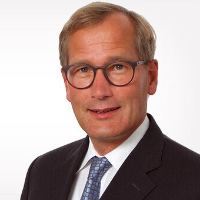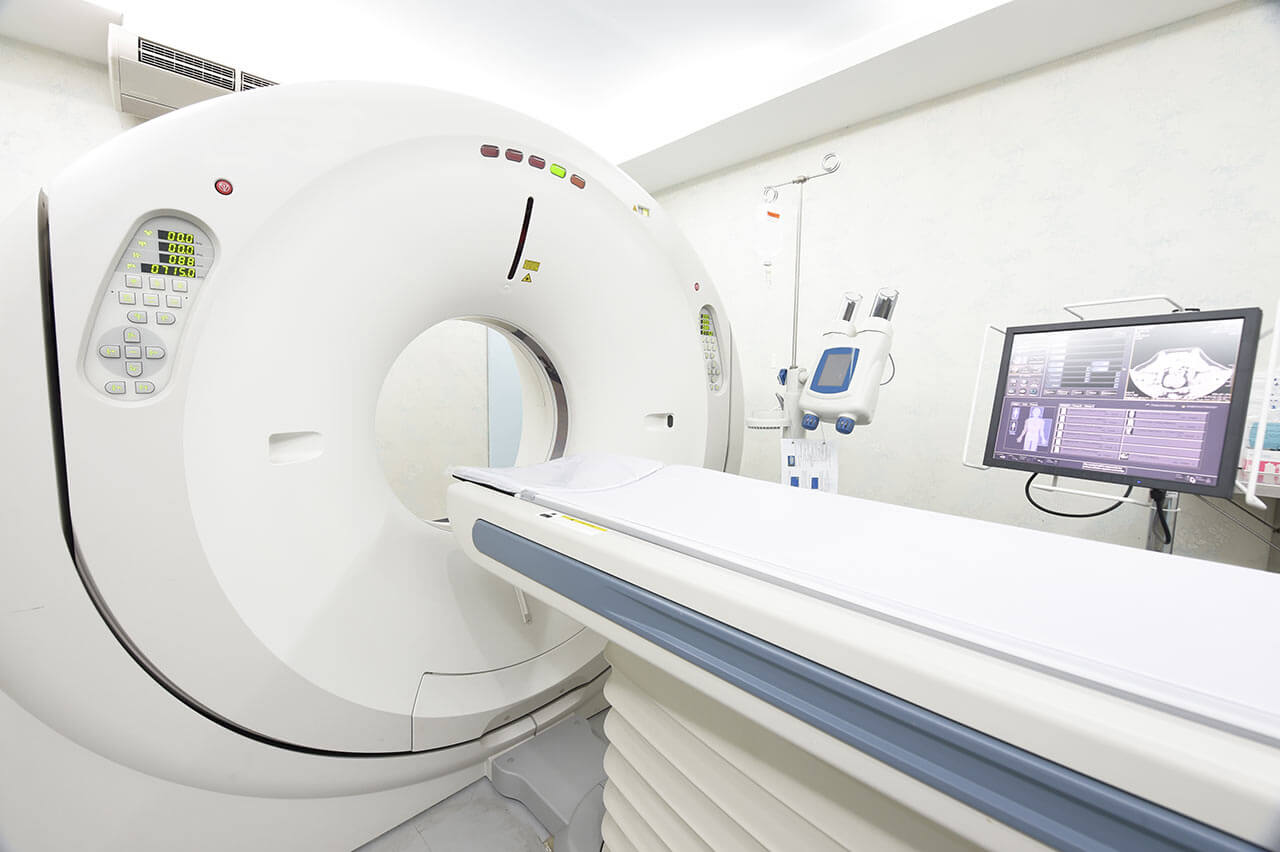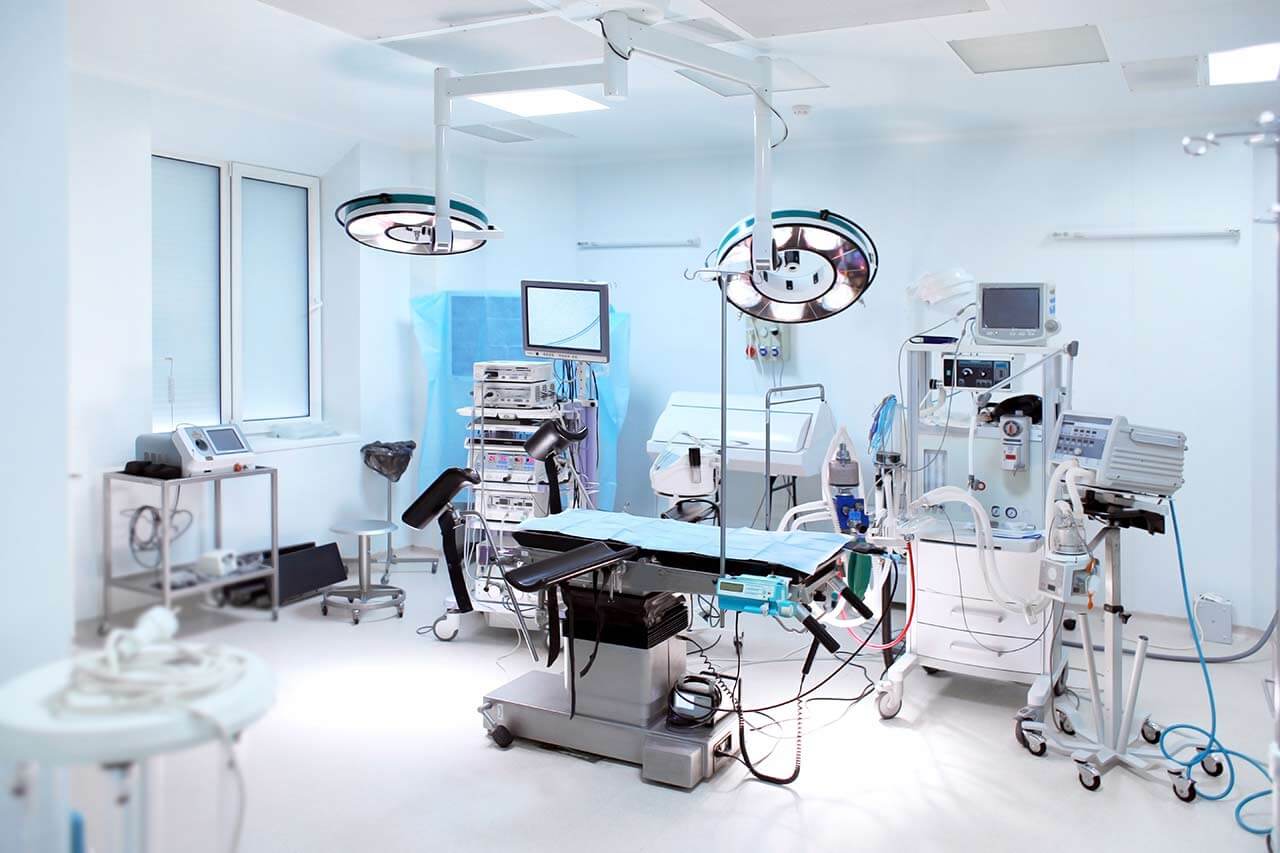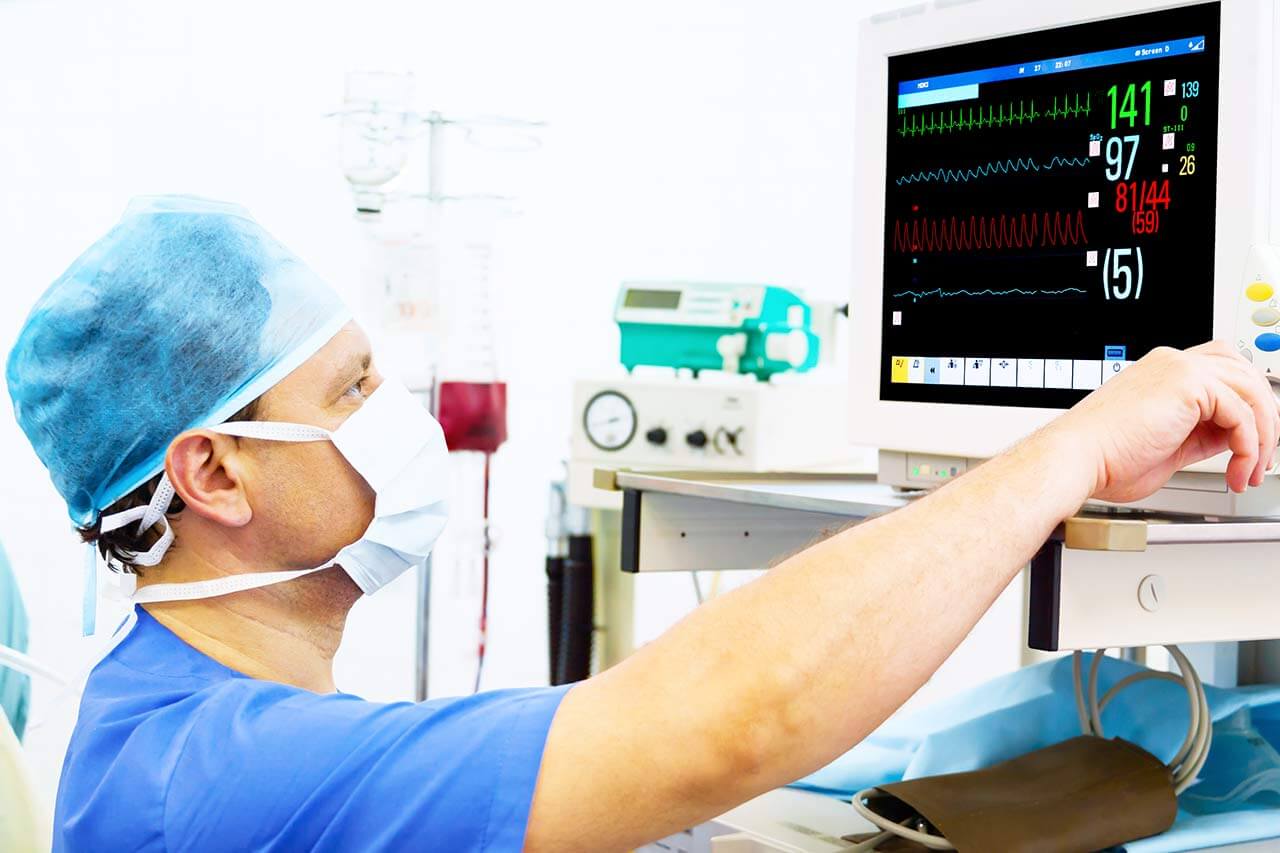
The program includes:
- Initial presentation in the clinic
- clinical history taking
- physical examination
- cardiological examination
- laboratory tests:
- complete blood count
- biochemical analysis of blood
- TSH-basal, fT3, fT4
- inflammation indicators
- indicators blood coagulation
- measurement of arterial blood pressure
- electrocardiogram
- holter monitoring (24h)
- echocardiography or transesophageal echocardiography
- preoperative care
- cardiac catheterization
- repair of pulmonary valve
- symptomatic treatment
- control examinations
- cost of essential medicines and materials
- nursing services
- full hospital accommodation
- explanation of future recommendations
Required documents
- Medical records
- Echocardiography (if available)
Service
You may also book:
 BookingHealth Price from:
BookingHealth Price from:
About the department
The Department of Cardiothoracic Surgery at the Heart and Diabetes Center NRW Bad Oeynhausen offers all surgical methods for treating diseases of the heart, blood vessels, and chest organs. The department specializes in minimally invasive interventions on the heart and blood vessels, coronary artery bypass grafting, the treatment of heart arrhythmias, the use of artificial heart assist systems, and transplant medicine, including heart transplants, lung transplants, and heart-lung transplants. More than 2,500 transplants have been performed in the department since 1989. The department's cardiac surgeons often perform complex surgical interventions on the heart, as a result of which they have exceptional experience and save the lives of people with severe pathological changes in the heart. The specialists always strive to select the most sparing surgical techniques and provide their patients with high-quality treatment outcomes. For example, almost all operations for heart valve replacement and repair are performed using minimally invasive techniques. Coronary artery bypass grafting is also often performed using low-traumatic techniques, that is, without a thoracotomy. With more than 3,600 operations every year, the department ranks among the Cardiothoracic Surgery Centers with the greatest clinical and surgical experience in the world. The department is headed by Prof. Dr. med. Jan Gummert.
Particular attention in the department's clinical practice is given to operations on the heart and coronary arteries. The specialists at the medical facility perform both conventional open interventions and technically complex minimally invasive operations to treat diseases in this group. The most requested interventions include heart valve repair and replacement (operations on the aortic, mitral, tricuspid, and pulmonary valves) and coronary artery bypass grafting. The department's cardiac surgeons prefer effective but as sparing surgical techniques as possible, and therefore it is possible to perform minimally invasive surgical treatment in most cases. A surgical treatment technique is determined for each patient individually and depends on the clinical case, age, and comorbidities. The department's specialists annually perform more than 2,000 interventions to replace heart valves. During such operations, mechanical and biological prostheses can be used. In addition, the department became the first in Germany to obtain a license for the production of vascular valvular homografts in 2003. This license was extended in 2008, and the department also has the right to manufacture arterial and vein homografts now. Vascular valvular homografts are of particular value in the treatment of patients with infectious lesions of the heart valve and large blood vessels extending from the heart.
The department's surgical team demonstrates excellent results in the field of transcatheter aortic valve implantation (TAVI) and is certified by the German Cardiac Society (DGK). The TAVI procedure is indicated for patients with severe aortic valve stenosis requiring valve replacement surgery, but the risks of classical heart valve replacement are high. Comprehensive diagnostics and surgical planning precede the operation. The surgical procedure is performed in a hybrid operating room that is equipped with systems for both classical heart surgery and catheter-based interventions. Transcatheter aortic valve implantation does not require any incision in the sternum or the use of a heart-lung machine. A biological prosthesis is delivered using a catheter, which is inserted through the inguinal artery and aorta. As of today, the TAVI procedure is an innovative and highly effective treatment method offered only by advanced cardiac surgery clinics.
Patients with heart arrhythmias are regularly treated in the department. The interdisciplinary working group of the department, consisting of cardiologists, cardiac surgeons, and specialists in transplant medicine, offers patients with arrhythmias modern cardiac resynchronization therapy using pacemakers and defibrillators. As a rule, a pacemaker and a defibrillator are implanted under local anesthesia using low-traumatic techniques. After having a pacemaker or defibrillator implanted, patients lead a full life, but they need regular check-ups to make sure the device is working properly.
The department is one of the few in Europe that specializes in heart, lung, and lung-heart transplants, as well as ventricular assist device (VAD) implantation. A heart transplant is the last-line treatment for patients with severe heart failure. This operation is one of the most complex surgical interventions, so it is preceded by comprehensive diagnostics and an assessment of the risks and benefits of such treatment. A lung transplant may be the only effective treatment for patients with chronic obstructive pulmonary disease, idiopathic pulmonary fibrosis, cystic fibrosis, idiopathic pulmonary arterial hypertension, sarcoidosis, and other pathologies. Lung transplants are also quite complex, and surgeons accurately examine patients before making a final decision on the surgical intervention. The department's cardiac surgeons have been engaged in transplant medicine since 1989, so patients confidently trust them with the most precious thing of all, namely, their lives.
It is worth noting that the department has special experience in treating patients with heart disease caused by diabetes mellitus. Coronary arteries are very often affected in patients with diabetes mellitus, so a great number of such people seek medical attention at the department (this is almost a third of all patients who require heart surgery). Patients in this group receive cardiac medical care with the involvement of experts in diabetes mellitus.
The department's range of surgical services includes the following options:
- Coronary artery bypass grafting with and without a heart-lung machine
- Heart valve surgery
- Surgery for aortic valve stenosis and insufficiency, including the innovative TAVI procedure for severe forms of aortic valve stenosis
- Surgery for mitral valve stenosis and insufficiency
- Surgery for tricuspid valve stenosis and insufficiency
- Surgery for pulmonary valve stenosis and insufficiency
- Surgery for heart arrhythmias
- Pacemaker implantation
- Defibrillator implantation
- Cardiac resynchronization therapy
- Transplant surgery and heart support
- Heart transplant
- Lung transplant
- Heart-lung transplant
- Ventricular assist device (VAD) implantation
- Other surgical treatment methods for diseases of the heart, blood vessels, and chest organs
Curriculum vitae
Higher Education and Professional Career
- 1982 - 1988 Human Medicine studies, Universities of Tuebingen and Bonn.
- 1988 - 1990 Internship in the Department of Surgery at the University Hospital Bonn.
- 1989 Thesis defense on the subject: "Recurrence rate and degeneration of villous and tubulovillous adenomas".
- 1990 - 1994 Assistant Physician, Department of Cardiothoracic Surgery, University Hospital Goettingen.
- 1994 - 1996 Assistant Physician, Department of Cardiac Surgery, Heart Center Leipzig.
- 1996 Board certification in Cardiac Surgery.
- 1997 - 1998 Postdoctoral Fellowship (scholarship from the German Research Foundation), Stanford University.
- 1998 - 2001 Senior Physician, Department of Cardiac Surgery, Heart Center Leipzig.
- 2002 C3 Professorship for Cardiac Surgery (focus on chest organ transplant surgery).
- 2002 - 2005 Academic Dean, Faculty of Medicine, University of Leipzig.
- 2006 W3 Professorship for Cardiothoracic Surgery, Friedrich Schiller University Jena, Head of the Department of Cardiothoracic Surgery.
- 2009 Director, Department of Cardiothoracic Surgery at the Heart and Diabetes Center NRW Bad Oeynhausen.
Research Projects (Selected)
- Pharmacodynamics of immunosuppressants, German Research Foundation, Gu 472 / 1-1-472 / 2-3.
- Cardiomyoplasty, Acorn multicenter study.
- Anastomotic devices in coronary artery surgery.
- Surgery without the use of a heart-lung machine.
- Long-term preservation of donor organs.
- Quality assurance in cardiac surgery.
Memberships in Professional Societies
- German Society for Thoracic and Cardiovascular Surgery (DGTHG), Head of the Working Group on Electronic Data Processing and Quality Control in Cardiac Surgery.
- German Transplantation Society.
- International Society for Heart and Lung Transplantation (ISHLT).
- International Society for Minimally Invasive Cardiac Surgery (ISMICS).
- Cardiac Specialist Group of the German HQ for Quality Assurance.
- German Cardiac Society (DGK).
- European Association for Cardio-Thoracic Surgery (EACTS).
- German Society of Surgery (DGCH).
Photo of the doctor: (c) Herz- und Diabeteszentrum NRW, Bad Oeynhausen
About hospital
According to the prestigious Focus magazine, the Heart and Diabetes Center NRW Bad Oeynhausen ranks among the top German hospitals in the area of its specialization!
The center is one of the leading medical facilities specializing in the treatment of cardiovascular diseases and diabetes mellitus at the international level. About 37,000 patients are treated here every year, while approximately 14,700 of them receive inpatient medical care. The highly qualified specialists at the center perform about 6,400 heart surgeries and about 10,000 cardiac catheter-based examinations, as well as about 800 electrophysiological studies, and provide medical care to more than 1,000 patients with congenital heart defects annually. The doctors are justifiably proud of their unique clinical experience and successful treatment outcomes, which contribute to the excellent reputation of the medical center in Europe.
The center has been a university hospital at Ruhr University Bochum since 1989. The center's staff takes an active part in research activities and the training of medical students. The scientific knowledge that specialists receive in the in-house Clinical Research and Development Center is used to continuously improve treatment outcomes.
The high-tech infrastructure of the center deserves special attention. There are one pediatric and six adult cardiac catheterization laboratories, eight standard operating rooms, and one state-of-the-art hybrid operating room. In addition, the center has a Sleep Laboratory, and thanks to the National School of Applied TeleHealth, remote medical care is also available here. The medical facility uses innovative diagnostic tests, such as MRI and PET-CT scans, surgical techniques, and conservative therapy methods. The quality of all services provided meets the latest standards of international medicine.
At the center of all the efforts of medical workers is a person with their own needs and personal experiences. The involvement of the patient's family and other close people in this process is an important part of the treatment. This concept has become the key to the hospital's success and recognition.
The center is recognized as one of the best in the European medical arena in the field of diagnostics and treatment of arterial hypertension (certification from the European Society of Hypertension), is included in the list of medical facilities of the German Diabetes Society, and is certified as the Adult Congenital Heart Disease Center (EMAH certification). In addition, the center has been regularly certified by the Cooperation for Transparency and Quality in Healthcare (KTQ) since 2008. The medical facility is certified by the German Cardiac Society (DGK) in the fields of transcatheter aortic valve implantation, treatment of heart failure, and atrial fibrillation. All these achievements speak for themselves, which is why patients confidently trust their health to the specialists at the Heart and Diabetes Center NRW Bad Oeynhausen.
Photo: (с) depositphotos
Accommodation in hospital
Patients rooms
The patients of the Heart and Diabetes Center NRW Bad Oeynhausen live in comfortable rooms equipped with all modern conveniences. All patient rooms are distinguished by their modern interior and high level of comfort. The standard room furnishing includes an adjustable bed, a bedside table, a wardrobe, a telephone, and a TV. The large windows of the patient rooms offer beautiful views of the natural landscape.
The center also offers single enhanced-comfort rooms with a stylish interior and a hotel atmosphere. Such rooms are additionally equipped with a mini-fridge, a safe, and a mini-bar. The bathroom has all the necessary toiletries, changeable towels, and a bathrobe.
Meals and Menus
The patients of the center are offered tasty, varied, and healthy meals three times a day: breakfast, lunch, and dinner. If, for some reason, you do not eat all the food, you will be provided with an individual menu.
Patients living in enhanced-comfort rooms are provided with a special menu with a wide selection of dishes, as well as fresh fruits, coffee, tea, and pastries.
Further details
Standard rooms include:
Accompanying person
Your accompanying person may stay with you in your patient room or at the hotel of your choice during the inpatient program.
Hotel
You may stay at the hotel of your choice during the outpatient program. Our managers will support you for selecting the best option.




